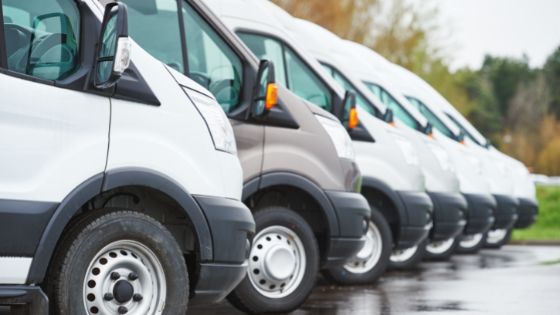One of the biggest reasons businesses opt to purchase vehicles through their business is because of the Section 179 deduction. This tax deduction allows businesses to deduct a large portion of the cost of the vehicle. Owners will also need to keep a usage report in the event that there is a tax audit. While the financial benefits are clear, it might not be easy for a business to accumulate the right fleet to complement their business activities. While taxes are a large component in the decision-making process, they’re not the only thing to consider.
Business Vehicles Have Certain Income Statement Benefits
Depreciation might sound like a bad thing, but there are certain depreciation calculations that allow businesses to write back the depreciation of their assets. This is usually calculated according to the finance period and drops the business’s taxable income. For instance, a $20,000 vehicle that’s financed over 5 years, will depreciate by $4,000 each year. This means $4,000 can be deducted from the income statement, which lowers the tax payable by the business. This is a technical inclusion on the income statement, and those looking to determine value in the event of a sale of the business or when applying for finance should add this amount back.
The Right Car Can Help With Business Branding
A company car that’s on the road most of the day is the perfect canvas to showcase a business. Signage and branding can easily be added to a vehicle, and if done right, can be a constant lead generator for businesses. Those who need to create the right image with high-powered clients may also want to find a car that represents their brand best. Luxury sedans might convey the right message to discerning clients, but for those who work on the farm or need a high-powered towing capacity, a truck might work better. Farmers and fresh produce providers, manufacturers and tradesmen might find certain vehicles are better suited to their business operations and add some clout to their branding. The trick is to find a vehicle that carries a suitable rating, whether new or used. Also, pay attention to details in terms of functionality; you’ll want to make sure the engine, brakes and more importantly the entire gearbox is in working order.
Your Personal Car Might Not Be Covered
One of the biggest threats to a business is the loss of an asset that doesn’t have sufficient cover. A personal car that is covered by a personal insurance policy might not be covered in the event that the car is used for business purposes. While some insurances have a section that covers personal cars for occasional business use, there is often a threshold. When this threshold is reached, the insurer might request the owner to convert their policy to a business policy. If the owner forgets to make the necessary changes, they might be at risk if the vehicle is involved in an accident or is stolen.
Accumulating a fleet for the business carries many benefits and for business owners, it’s worth doing the math.

















